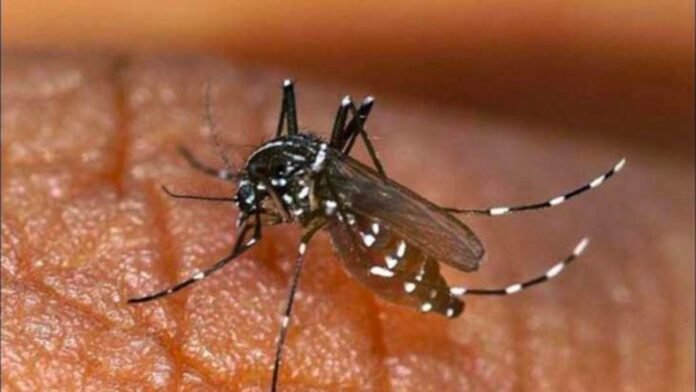Dengue and Japanese Encephalitis (JE) have increased sharply in Assam in recent years, posing serious health dangers. Vector-borne infections have killed over 15 people during monsoon season, according to government figures. Medical colleges have responded to the illness epidemic and every district authority is on high alert.
Japanese encephalitis, a mosquito-borne virus related to dengue, yellow fever, and West Nile, is defined by WHO.
The health government reports JE cases in Assam from July to September, but this year, instances began in mid-July.
JE virus is carried by infected Culex mosquitoes, notably Culex tritaeniorhynchus. Disease risk is higher around rice fields, water supplies, and pig habitats.
Doctors say JE patients usually have no or mild symptoms. Fever, headache, nausea, vomiting, stiff neck, speech impairment, and spastic paralysis are moderate to severe symptoms.
People should wear long-sleeved clothes, use mosquito nets, pesticides, and repellents, remove standing water and drains, and keep their homes clean.
JE prevention requires vaccination. In JEV-endemic regions, the Indian Universal Immunisation Programme (UIP) includes a vaccine.
India’s worst hit
Assam had the most JE fatalities in 2006. The sickness killed about 1,500. Last year, JE-like infections killed 77.
State Health Minister Keshab Mahanta said the health department is ready to handle growing JE cases. Every government hospital has separate beds for such patients. Mosquitoes are fumigated everywhere.
The Ministry of Health and Family Welfare reported 730 JE deaths in India from 2018 to 2022, 442 of which were from Assam.
IANS reported 254 cases from a top health department officer. GMCH lost five patients. Multiple hospitals have critical patients. Thus, deaths may rise.
JE signs
Doctors say Japanese encephalitis starts with fever and a strong headache. Fever causes delirium. If this happens, doctors urge hospitalization immediately.
Minister Mahanta also warned the public. Use medicated mosquito netting. “Health workers are going door-to-door and testing people’s blood samples,” he continued. Mahanta stated, “Free treatment of Japanese encephalitis has been arranged in government hospitals.”
Conclusion:-
Dengue and Japanese Encephalitis (JE) have increased in Assam, creating health dangers and prompting worry. Infected Culex mosquitoes, particularly Culex tritaeniorhynchus, bite people to spread the virus. Fever, headache, nausea, vomiting, stiff neck, speech impairment, and spastic paralysis are common symptoms. Long-sleeved clothes, mosquito nets, pesticides, repellents, clean water, and a clean environment prevent JE. Japanese encephalitis vaccines are part of the Indian UIP. Keshab Mahanta, the state’s Health Minister, noted that every government hospital has special beds to handle mounting JE cases. 730 Indians died of JE from 2018 to 2022, 442 from Assam. fever, headache, and delirium. Medically treated mosquito nets are recommended by doctors. Government hospitals offer free care.



